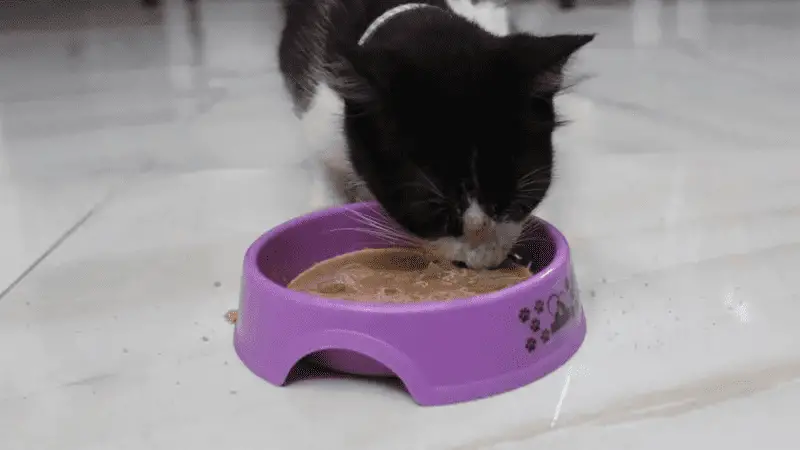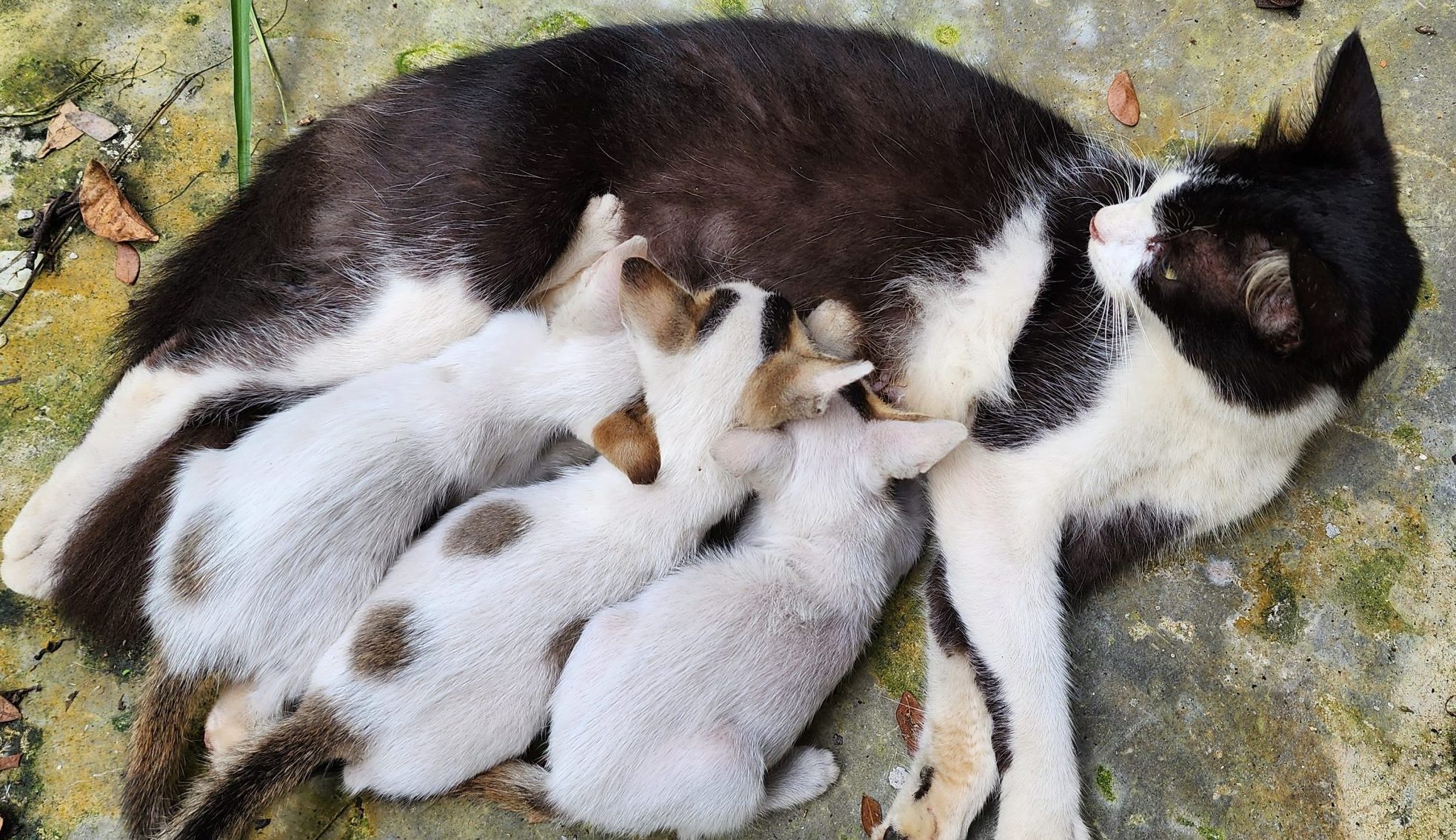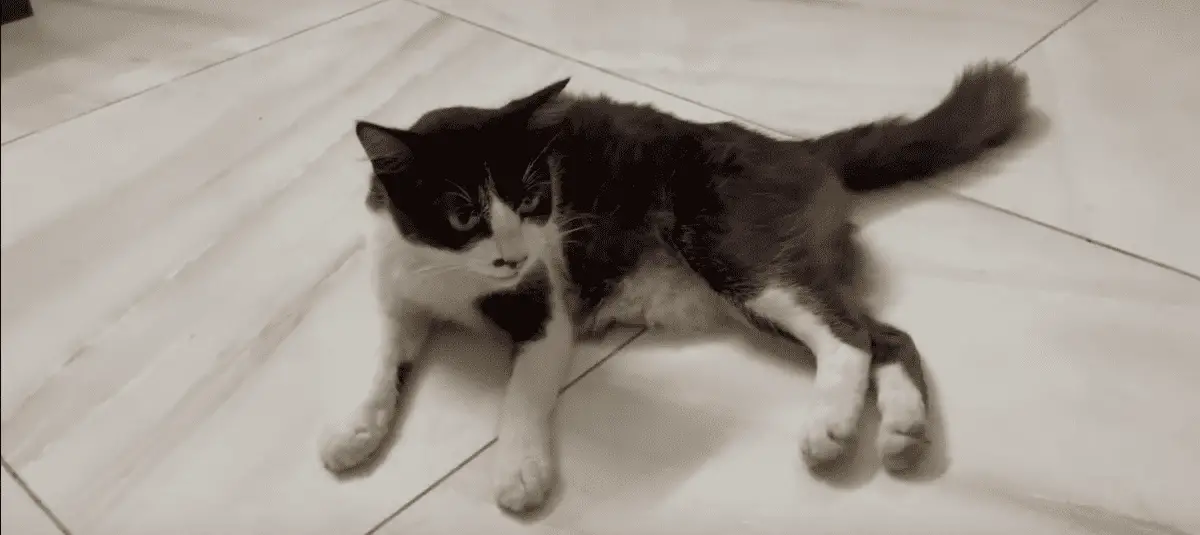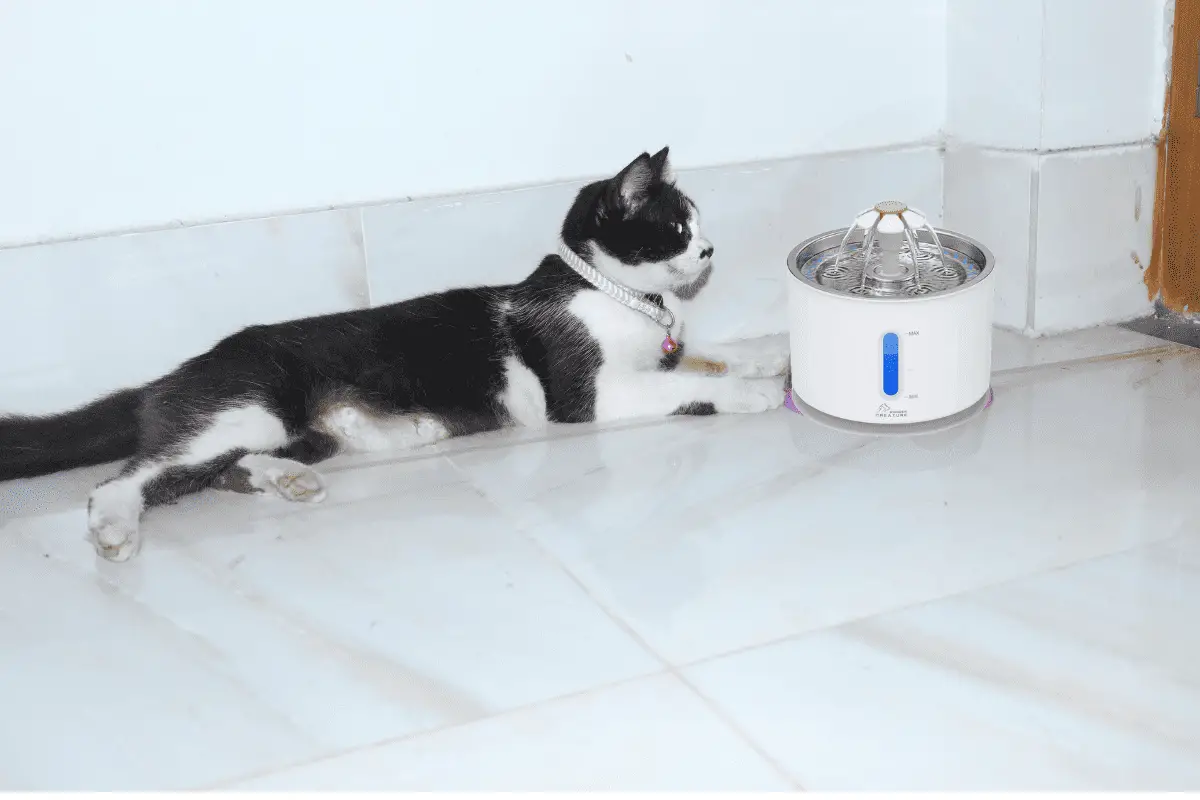Worming is essential to maintain your cat’s good health and ensure a long life. Nursing cats are at greater risk because worms can also be passed on to kittens.
Now, the question is, can you worm a nursing cat? Yes, you can, according to the veterinarian’s instructions. While worming nursing cats, keep the timing, medication, and dosage in mind. Monitor the worming process carefully and attend follow-up visits to the vet if needed.
So, are you having trouble deworming your nursing cat? Find out the factors you need to consider besides their health, weight, and age!
Can You Worm a Nursing Cat? Why is it so Important?
Yes. You can worm your nursing cat. And it’s important because nursing cats are more prone to worm infestation and this can also be passed on to the newborn kittens. Here are the reasons I wormed my nursing cat Muezza as soon as I could:
1. Protecting the Mother Cat’s Health
Cats that are nursing are more prone to catching and spreading parasites. Roundworms, hookworms, and tapeworms are examples of internal parasites. That can harm cats and result in weight loss, diarrhea, anemia, and general ill health.
You can help the nursing cat avoid any potential harm from these parasites by deworming her.
2. Preventing Transmission to Kittens
If the mother cat has worms, she might give these parasites to her young through her milk. This may result in slow growth, poor development, and weakened immune systems in the kittens.
Deworming the nursing cat helps to ensure that her milk remains rich in nutrients and free of any potential toxins.
You can reduce the likelihood of passing worms to the nursing cat’s kittens and encourage their healthy development by deworming the nursing cat.
3. Reducing Environmental Contamination
Infested cats’ feces contain the eggs that worms produce. If the nursing cat has worms, her feces can contaminate the environment, including the litter box and the area where the kittens reside.
This increases the risk of the kittens coming into contact with and ingesting worm eggs, leading to their infestation. Deworming the nursing cat lowers the chance of reinfection and reduces environmental contamination.
4. Maintaining Overall Family Health
Worm infestations can endanger the nursing cat and her kittens, other household pets, and even people. Some parasites, like roundworms, can be transmissible, which means they can spread from animals to people.
By regularly deworming Muezza, I can create a healthier environment for the entire family.
How Can I Know If My Cat Has Worms?
Worm infestations in nursing cats can exhibit various symptoms. However, it’s important to note that some cats may not show any obvious signs, especially in the early stages of infestation.
Here are some symptoms I noticed in Muezza when she was nursing and infested with worms:
● Change in Appetite
Worm infestations can cause a decrease in appetite or, in some cases, increased hunger. If you notice significant changes in the nursing cat’s eating habits, it could be a sign of a worm infestation.
● Unusual Weight Loss
Worms fight for nutrients with the cat, which can cause weight loss, especially if the infection is severe or prolonged. Check your cat’s weight regularly to notice any significant change and consult the vet if needed.
● Diarrhea or Vomiting
Cats may experience gastrointestinal symptoms from certain worms, like roundworms and hookworms, such as diarrhea or vomiting. You may notice changes in the consistency, color, or frequency of the cat’s feces.
● Lethargy and Weakness
Infected nursing cats may show decreased activity, increased drowsiness, or general frailty. This can be related to the worms using up the cat’s energy.
If you notice any of these symptoms in your nursing cat, make sure to visit an experienced veterinarian as soon as you can!
How to Worm a Nursing Cat: Easy Steps to Follow
You may need to worm your nursing cat multiple times in its lifetime, depending on the severity. I wormed my cat Muezza when she was nursing and these are the steps I followed –
Step 1
Consulting With a Veterinarian
To give Muezza the best treatment, I first consulted with a vet to assess the situation. The vet examined her health, discussed the potential risks, and suggested an appropriate deworming procedure accordingly.
Since Muezza is a little over 2 years old, the veterinarian prescribed medicines for her accordingly.
Step 2
Selecting a Safe Worming Medication
Based on the veterinarian’s recommendation, I selected a deworming medication that’s safe for my nursing cat and effective against the specific parasites commonly found in my area.
You should also ensure that the medication is suitable for both the mother cat and her kittens.
Step 3
Determining the Dosage
Depending on Muezza’s weight, the vet recommended a specific dosage of the medication. It’s important to follow the vet’s instructions for a smooth treatment.
So, always check in with your vet before changing the dosage!
Step 4
Observing the Medication
Worming medicine can come in many forms – tablets, liquids, or topical treatments. Pay close attention to your vet’s instructions to avoid any mistakes.

To treat Muezza, I crushed the tablet before mixing it in a small amount of wet cat food. Sometimes I’d also hide the medicine in her little treats!
You can measure liquid dewormers using a syringe and provide it orally. Topical treatments are usually applied directly to the skin.
Step 5
Look After the Effects
After giving the deworming treatment, keep an eye out for any negative responses or side effects in the nursing cat. Observe her actions, appetite, and general health.
Get in touch with your veterinarian right away if she shows any alarming symptoms.
Step 6
Going for Follow-up Treatments
The veterinarian may advise a follow-up treatment based on the severity of the infestation and the medicine provided.
To guarantee complete deworming and avoid re-infestation, listen to his advice regarding the time and frequency of follow-up deworming treatments. If your cat is highly infested, you may need to repeat the treatment.
Step 7
Ensuring a Clean Environment
Maintain a clean living space for the nursing cat and her kittens to reduce the chance of reinfection. Regularly clean the litter box, bedding, and surroundings to lessen the amount of worm eggs and larvae.
These 7 steps helped me treat Muezza’s worm infestation fast and easily. Remember that these steps and instructions vary due to the difference in age, weight, and health of the nursing cats.
An experienced vet can provide you with detailed guidance for carrying out the process safely.
How Often Should I Worm My Nursing Cat?
According to the suggested dosage, deworming should start at 6 weeks old and be repeated at 8, 10, and 12 weeks for kittens. Nursing cats should also be treated at the same time. Then, until 6 months old, kittens should receive monthly deworming.
Here’s a chart you can follow for deworming nursing cats:
| Cats in Different Situations | Worming Treatment |
| Pregnant Cats | Before expected birth, use one dosage of emodepside spot-on for seven days to stop the lactogenic transmission of Toxocara cati larvae to the kittens |
| Nursing Cats | Treat simultaneously with the first dosage of kittens |
| Cats who share spaces with children younger than 5 years or individuals with weak immune systems | Schedule deworming or check fecal samples once a month and treat accordingly, keeping the risk in mind |
| Cats that live in areas with heartworm | Apply precautionary larval therapy with macrocyclic lactones once every month when it’s mosquito season |
When my cat Muezza was nursing, I made sure to deworm her every two weeks to prevent any further infestation.
Can Deworming Medications Have Side Effects?
Deworming treatments are generally safe and rarely cause negative effects if they’re given at the recommended dose. If you use a topical treatment, the most frequent side effects are hair loss at the application site, increased salivation, vomiting, and diarrhea.
After giving your cat a dewormer, let your veterinarian know if you see any unusual behaviors.
FAQs
As a cat owner myself, there are a few questions that frequently come to my mind. Let’s have a look–
Q. Can I worm a pregnant cat?
Yes, you should worm pregnant cats whenever it’s necessary. Provide worm medication before the birth of kittens, as they might also contract intestinal worms.
Q. What wormer is the safest for my cat?
Elanco tapeworm dewormer is an easy and effective way of treating worms in cats and it starts working with a single dose!
Q. What’s the best food for a nursing cat?
Make sure to feed your nursing cats with high-quality kitten formula food enriched with essential nutrients.
Final Thoughts
Cats of all ages can be frequently infected by worms and nursing cats are no exception. Pet owners often ask can you worm a nursing cat? You can easily worm your nursing cat with proper medication and supervision.
Follow the veterinarian’s instructions precisely for the medicine, timing, and dosage. Keep your surroundings clean and track the progress of the treatment. Nursing cats are more vulnerable to parasites, so you always need to keep an eye out!






Leave a Reply